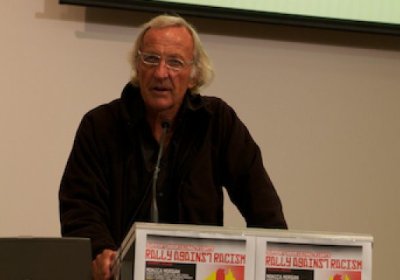Indigenous
The coroner in the third inquest into the death in custody of Mulrunji Doomadgee on Palm Island in 2004, Queensland deputy chief magistrate Brian Hine, has handed down an “open finding”. This means no criminal charges will be laid against senior sergeant Chris Hurley. Delivering his report on May 14, Hine cited the unreliability of witnesses, who changed their stories many times throughout the various investigations and inquiries, as the reason for his inability to make a definitive finding. But he also said there was evidence of collusion by police officers to protect Hurley.
The following is a transcript of a speech by award-winning journalist John Pilger at the Sydney Teachers’ Federation on April 23. It was part of a public launch of the Four Days in July national Aboriginal rights convergence in Alice Springs from July 6 to 9.
- Previous page
- Page 127
- Next page






